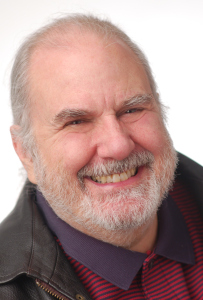 “Although our laughter may be as distinctive as our speech, laughter is not infinitely variable. If we all laughed differently, we could not identify a vocalization as laughter,” said Psychology Research Professor and Professor Emeritus Robert Provine in a recent Mashable article.
“Although our laughter may be as distinctive as our speech, laughter is not infinitely variable. If we all laughed differently, we could not identify a vocalization as laughter,” said Psychology Research Professor and Professor Emeritus Robert Provine in a recent Mashable article.
The article, published December 1, examines why people have different laughs. Provine, who is author of Curious Behavior: Yawning, Laughing, Hiccuping and Beyond, said “most classical laughs have a short, harmonic blast (‘ha’) of about one-fifteenth of a second duration, that repeats every one-fifth of a second. It’s hard to laugh in any other way. Try it. The result doesn’t sound very much like a laugh — at least not a convincing one.”
He adds, “linguists, psychologists and philosophers often have trouble dealing with such primal vocalizations, treating laughter as if it’s speech. Laughter — and crying — have more in common with the barking of a dog than speech.”
To read the full article titled “Why do people have different laughs?” click here.
Tags: CAHSS, Psychology
